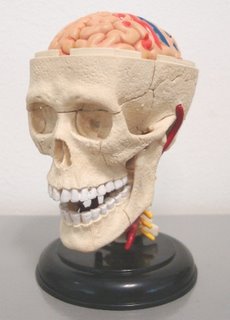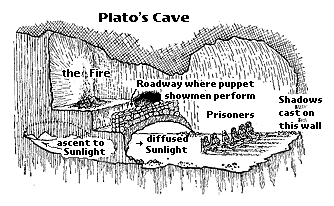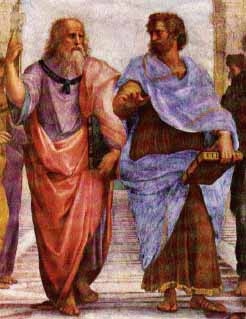 Plato was an ancient Greek philosopher who wrote The Republic, a book of philosophical ideas and political theories.
Plato was an ancient Greek philosopher who wrote The Republic, a book of philosophical ideas and political theories.One main idea in his book was the Allegory of the Cave.

To explain this allegory simply, Plato believed that physical objects are not real.
They are analogous to the shadows of puppets that are cast on a wall, projected by a bright light.
The real causes of the shadows are the Forms (the actual puppets). Forms are Perfect and Eternal things. One quality they have in common is the Form of the Good (the bright light).
He believed that you cannot understand the essence of reality by studying the shadows, since shadows are temporary and unimportant things.
The only way to reach the truth is by reflection and divine contemplation.
Thus, it is pointless to study Nature by observations and performing experiments, since all you can learn will be meaningless details about "shadows".
Because Plato was such a influential philosopher, his ideas became the basis of spiritualistic worldviews that was to gain a strong foothold on social and political systems, even till today.
And helped to impede the progress of science for hundreds of years.
Heh.

Plato (left) points to the Heavens while Aristotle (right) points to the Earth.
Lucky for us then that Aristotle came along. This wayward student of Plato was so opposed to some of his master's teachings that he was not appointed the head of Plato's Academy.
Instead of Eternal Forms, Aristotle believed that the ultimate reality is found in physical objects, and can be discovered by experience.
He had many interests - anatomy, astronomy, economics, embryology, geography, geology, meteorology, physics and zoology - and he studied these subjects by direct observations of Nature. Today we call this an empirical approach.
Though Aristotle had other wacky ideas and made some errors, his approach is much closer to the practice of modern science.
You're thinking: "Two dead philosophers. What's this got to do with the human predilection for virtual things?"
Well, it turns out that Plato might have a twisted idea of what constitutes reality, but his observation is partially correct.
Physical objects are real, of course, but the concept of "realness" doesn't exist unless you have a conscious mind to interprete them as such.
And for all his contributions to modern scientific thinking, Aristotle's assertion that the ultimate reality is in physical objects is partially wrong.
The "real" world we sense around us is actually a process produced by the interaction between our bodies and the physical world.
Our minds are already a type of virtual reality.
The mind is NOT merely an illusion. It feels so real that for centuries many people believed that the mind (or soul) exists in some transcendental realm, separate from our physical bodies.
We know this to be false because individuals with brain injury, or under the influence of certain drugs, or under situations of extreme stress and fatigue, perceive their world very differently from other people.
Humans tend to favour virtual things, because Life itself is a process - a real virtuality.
So, how did I arrive at this conclusion?
Stay tuned for Part III ("Emergence" of Gestalt and systems biology!) ...






2 Comments:
Hi Lim Leng Hiong, I love this post, very informative, are U a philosopher?
Hi Suray,
Thanks! I'm not a philosopher - I'm a graduate student studying evolutionary biology.
I did read the philosophy of rationality and ethics as an elective during my undergrad years.
Cheers!
Post a Comment